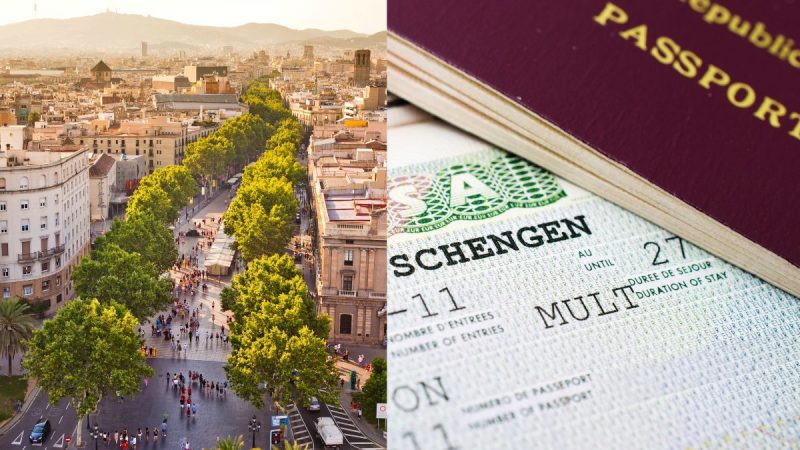Experiencing a financial setback due to rejected Schengen visas can be disheartening, especially for Indian travellers who often plan meticulously for their trips to Europe. The Schengen visa, essential for entry into 26 European countries, serves as a gateway to cultural exploration. However, the process of obtaining this visa is not without its challenges, and rejections can lead to significant financial losses.
Schengen Visa Rejections Costing A Lot?
For many Indians, the dream of exploring Europe begins with meticulous planning and substantial financial investment. The rejection of a Schengen visa not only results in the loss of these upfront costs but also impacts future travel plans and aspirations. According to a recent Schengen News report, the visa application process resulted in an enormous financial loss. Schengen visa applications denied to Indian applicants cost the country ₹109 crore (about €12.1 million) in 2023. Tourists are severely burdened financially by the non-refundable visa fee, even if the application process may seem easy or inexpensive at first.
An alarming number of Indian visa applications are denied each year, shattering hopes of travelling to Europe. 151,752 of the 966,687 Indian visa applications were denied. Right now, India is one of the top nations with the most Schengen visa rejections. Schengen nations denied 1.6 million visa applications the previous year, costing ₹1,172 crore in lost fees.
Also Read: How Does The New Schengen Cascade Visa System Work For Indian Citizens? Expert Insights Here!
Why Are These Applications Facing Rejections?
Financially, the repercussions extend beyond the immediate expenses. Indians who face visa rejections often have to bear additional costs associated with visa reapplying. This unpredictability can be particularly burdensome. But what makes Indians’ applications face rejection?
According to an article by Hindustan Times, visa applications are denied for various reasons, such as unclear trip objectives, missing paperwork, and inadequate evidence of sufficient funds to cover travel expenditures. Furthermore, some visas were turned down because of prior visa infractions and unsatisfactory employment histories.
Failure to provide all required documents, such as travel itinerary, accommodation bookings, travel insurance, or employment verification, can result in a visa denial. Inaccurate information or inconsistencies in the provided documents can also raise doubts about the applicant’s credibility. Lack of adequate bank statements, unclear sources of income, or discrepancies in financial documents can lead to rejection. Applicants who raise security concerns or appear on watchlists may face visa denials.
Addressing these challenges requires enhanced transparency in visa decision-making processes. But at the same time, the financial ramifications of Schengen visa rejections for Indians underscore the need for a balanced approach to visa policies.
Cover image credits: Canva

